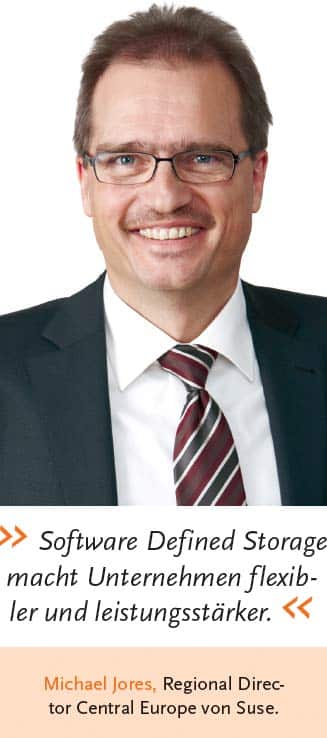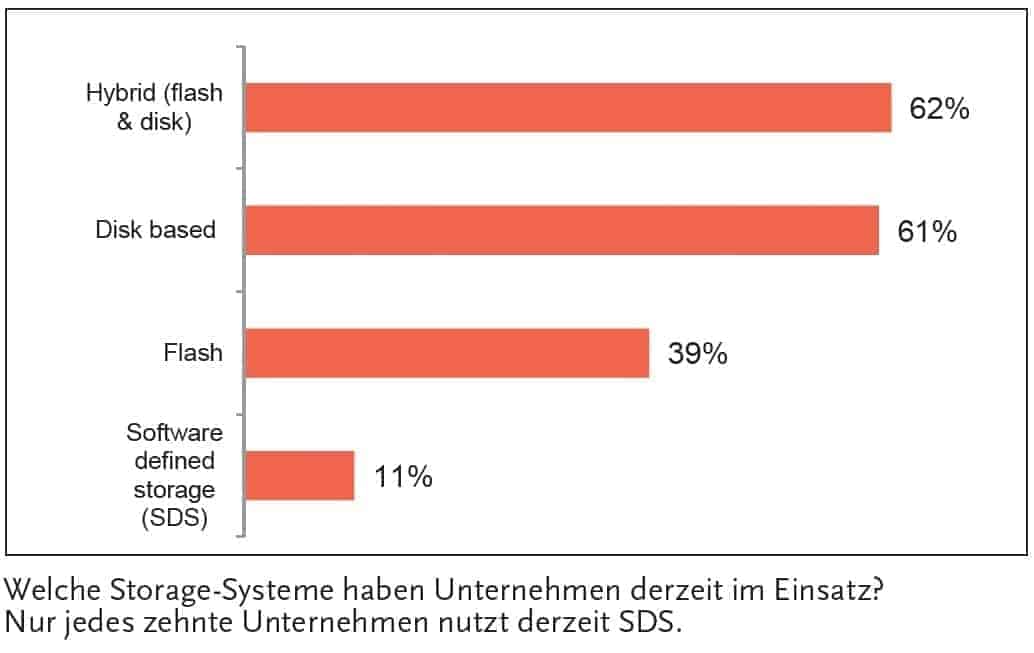Innovation brake block


A worldwide study by Loudhouse on the topic of storage, commissioned by enterprise open source provider Suse, found that 74 percent of German companies are dissatisfied with the costs of their old systems.
92 percent see significant additional costs ahead of them because the masses of data are growing. Today, seven percent of the entire IT budget is already spent on storage systems.
"Inflexible storage systems put the brakes on digital transformation"
says Michael Jores, Regional Director Central Europe at Suse.
"Software Defined Storage makes companies more flexible and powerful - and thus fit for the requirements of the digital economy. Open source is the most sensible approach to making the new systems scalable and future-proof."
Reasons for the change
94 percent see digital transformation in their company hindered by unsuitable storage solutions. IT has been under increasing pressure to become more agile for years (73 percent), but organizations struggle to reconcile storage and agility.
Hybrid systems still dominate
63 percent of the companies surveyed already want to start their SDS strategy next year. The main reasons cited by German IT managers are the growing masses of data (61 percent), poor performance (65 percent) and the lack of scalability of their old systems (75 percent).
To date, most companies rely on hybrid systems of disk and flash storage (71 percent), followed by disk-only storage (56 percent).
Open source solutions popular
Software-defined storage is already a reality in 12 percent of enterprises. This number will grow significantly in the coming year:
Nearly all respondents (97 percent) find SDS interesting or very interesting, and 76 percent are convinced of the business case.
More than 90 percent want to consider open source solutions for SDS deployment.
IT managers see the greatest advantages in better performance and easier deployment. The challenge lies in integration with existing systems (58 percent) and defining management and control (scope of control) (48 percent).
The above results relate to the statements made by German IT managers in the Loudhouse study.







